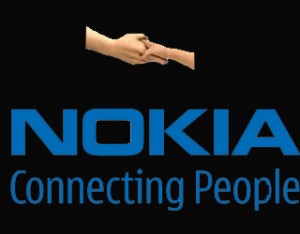EduNet 2013:Using Technology to enhance Learning in Nigeria
The internet, mobile phones, social media networks, PCs have made accessing and sharing information so interesting more than any other time in life. Of a truth, technology is enabling and enhancing different facets of life, education not left out. E-learning is one of the ways in which Nigeria can improve on her fallen standard of education as technology is being explored in learning. E-learning makes learning easy, ubiquitous, accessible, and affordable to a greater number of people who are not ordinarily opportune.
A developing nation like ours should make good and quality education the Right of every Nigerian and e-learning can be the means. It’s quite obvious that the present education system and curriculum being used in Nigeria needs to be reviewed into an innovative curriculum so it can attend to the needs of the times-and produce more entrepreneurs.
Globally today, the approach, method and form of learning have become very dynamic. Technology has come to play a very big role in the way we learn be it in formal education like schools, universities or for informal use like Enterprise/corporate training in organizations and institutions. Learning has become ubiquitous, open and democratized with new trends and technologies emerging every year. The e-learning market is projected to have in revenues of US$512.7m by 2016, as Africa is one of the fastest growing markets.
Technology enhanced learning are ways in which technology is used in one form or the other to support and make learning possible, available, accessible and then affordable. Learning is now offered in different forms, across different platforms, through several medium at all times supported by technology and this is referred to as e-learning.
E-learning according toWikipedia refers to the use of various kinds of electronic media and information and communication technologies (ICTs) in education. E-learning is an inclusive terminology for all forms of educational technology that electronically or technologically support learning and teaching, and may, depending on an emphasis on a particular aspect or component or delivery method, sometimes e-learning could be termed technology-enhanced learning (TEL), computer-based training (CBT), internet-based training (IBT), web-based training (WBT), virtual education, digital educational collaboration or distance/open education.
E-learning includes numerous types of media that deliver text, audio, images, animation, and streaming video, and includes technology applications and processes such as audio or video tape, satellite TV, CD-ROM, and computer-based learning, as well as local intranet/extranet and web-based learning. Information and communication systems, whether free-standing or based on either local networks or the Internet in networked learning, underlie many e-learning processes.
It is commonly thought that new technologies make a big difference in education. Many proponents of e-learning believe that everyone must be equipped with basic knowledge of technology, as well as use it as a medium to reach a particular goal.
The internet and multimedia technologies are the basic enabler of e-learning, with consulting, content, technologies, services and support being identified as the five key sectors of the e-learning industry.
E-learning can occur in or out of the classroom. It can be self-paced, asynchronous learning or may be instructor-led, synchronous learning. E-learning is suited to distance learning and flexible learning, but it can also be used in conjunction with face-to-face teaching, in which case the term blended learning is commonly used.
E-learning as a domain of intellectual pursuit and technical development can be categorized into discrete areas. The focus of e-learning could be as an educational approach or tool that supports traditional subjects; e-learning as a communication medium for knowledge development and exchange; e-learning itself as an educational subject (i.e. computer studies) where courses are most often named as Information and Communication Technology (ICT);e-learning administrative tools such as education management information systems (EMIS).
E-learning has evolved since technology was first used in education. There is a trend to move towards blended learning services, where computer-based activities are integrated with hands-on, face-to-face, or classroom-based situations.
Various methods in e-learning include:
Classroom 2.0
This refers to using an online multi-user virtual environment (MUVE) to connect schools across geographical frontiers. Known as “eTwinning”, computer-supported collaborative learning (CSCL) and the Internet allow learners in one school to communicate with learners in another that they would not get to know otherwise, enhancing educational outcomes and cultural integration.
E-learning 2.0
E-learning 2.0 is a type of computer-supported collaborative learning (CSCL) system that developed with the emergence of Web 2.0. From an e-learning 2.0 perspective, conventional e-learning systems were based on instructional packets, which were delivered to students using assignments. Assignments were evaluated by the teacher. In contrast, the new e-learning places increased emphasis on social learning and use of social software such as blogs, wikis, podcasts, virtual worlds and social networks.
Technologies including blogs, collaborative software, ePortfolios, virtual classrooms, audio, video and tools like computers, laptops, tablets are increasingly used to support e-learning.
With the increased use of mobile phones, a new method in e-learning being explored is the use of mobile phones for different types of learning and this is referred to as Mobile learning or m-Learning.
In other to leverage and maximize the opportunities through e-learning, Educational institutions, corporate organization, Government should development their e-learning strategy.
How do we explore the opportunities of e-learning in Nigeria?
At the Education Network Conference 2013 which will hold on September 17 and 18which will hold in Nigeria with the theme: E-learning Nigeria: Exploring the Opportunities in e-learning to enhance Education in Nigeria. Experts in e-learning around the world will offer solutions in:
-Developing and implementing E-learning for schools, Universities and other Higher Education community, corporate organizations, Government, institutions and non-governmental organizations.
-Demonstration of e-learning Technologies, solutions and tools
-Global best practices and Trends in E-learning
-Enterprise and Modern Corporate Training
-Virtual, distance and open universities.
-Virtual Classrooms, Digital libraries, Mobile Learning, Social Learning, Cloud based learning
-Exhibitions by E-learning service providers, institutions, organizations and Start-ups.
Visit http://www.edunetconference.com/edunet-2013/ for more.



